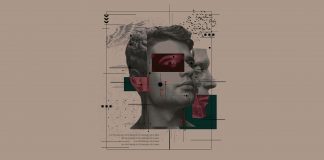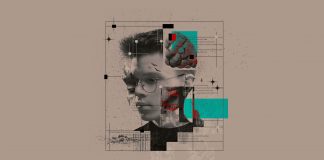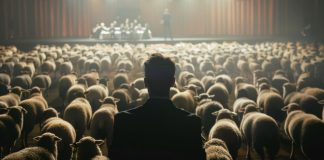How to cope with manipulation
Many of us probably know at least one manipulative person — or perhaps we’ve even caught ourselves falling into that category. But do we really know when this tendency to control or influence others becomes harmful? And more importantly, how can we deal with manipulative people?
The anatomy of belief: Part 2 | When meaning turns into an industry
Every religious movement and "camp" is built around a desirable ideal. However, when this core value becomes an end in itself and love—the hallmark of the Christian faith—is pushed into the background, tensions turn into open conflicts.
The anatomy of belief: Part 1 | When reason becomes just another emotion
Western societies pride themselves on their access to information. Compared to our predecessors, we seem to be the most informed generation to have ever lived on Earth. However, paradoxically, the more data we have access to, the harder it is to determine what is true and what is false.
How to think outside the box
"Happiness is not in the mere possession of money; it lies in the joy of achievement, in the thrill of creative effort." (Franklin Delano Roosevelt, US President)
Manipulation: when disinformers believe in us
When we think we are immune to disinformation, we become easy prey for those who manipulate us.
Erosion of trust | The ultimate effect of conspiracy theories
From television stories to personal experiences, we live in a world where honesty seems to be an increasingly rare commodity and suspicion and scepticism become protective shields.
Conspiracy theories, fake news and the truth that “sets us free”
Conspiracy theories and fake news are not the same thing, although the two categories have much in common.
The delicate burden of truth, or how to catch butterflies in a minefield
Even if we have not been to Eden, the longing for innocence draws us back to a time when we had not yet tasted the forbidden fruit.
Seduced by conspiracy theories
We live in a polarised world where conspiracy theories proliferate, but some people are more inclined than others to consume and propagate these theories rather than ignore or demystify them.
Enchanting words | When deductive thinking becomes the logic of the masses
It is crucial to realise that while words can be seductive and magnetic, they can also put us in great danger if we let ourselves be carried away by their charms, driven by emotional impulses without reason.
In the world of “what if” | Why we are drawn to counterfactual thinking
The ability to imagine alternatives to events that have already occurred distinguishes humans from other creatures and machines—artificial intelligence has not yet succeeded in creating a device that can devise counterfactual scenarios. The fact that we can travel in an imaginary time and rewrite our actions and their outcomes can prove to be an advantage or can lead to dysfunctional emotional and cognitive...
Two false oppositions: reason vs. faith and science vs. religion
"Intelligent, scientifically trained people no longer believe (or can no longer believe) in God."
The problem with chronic desiderative thinking
“Yeah, I understand what you’re saying about Christianity. I’ve been there, a long time ago, but now that I’ve moved on, I have a different relationship with the universe and things are going much better for me on all levels.”
The end of the world, overlooked by philosophy
"Logic suffers from a great logical fallacy: it believes that reality itself is of a logical nature. If it encounters something that cannot be understood logically, it will claim that this something doesn't exist, but only appears to exist..." (Lucian Blaga, Horizons and Stages)
No matter what we do, we are merely puppets on a string. True or false?
When it comes to conspiracy theories, the public quickly becomes polarised. On one hand, you have the “experts” who reel off reliable information with credible arguments from confirmed cases. On the other hand, there are the “uninformed,” completely disinterested in the subject or outright rejecting it as a myth.


























